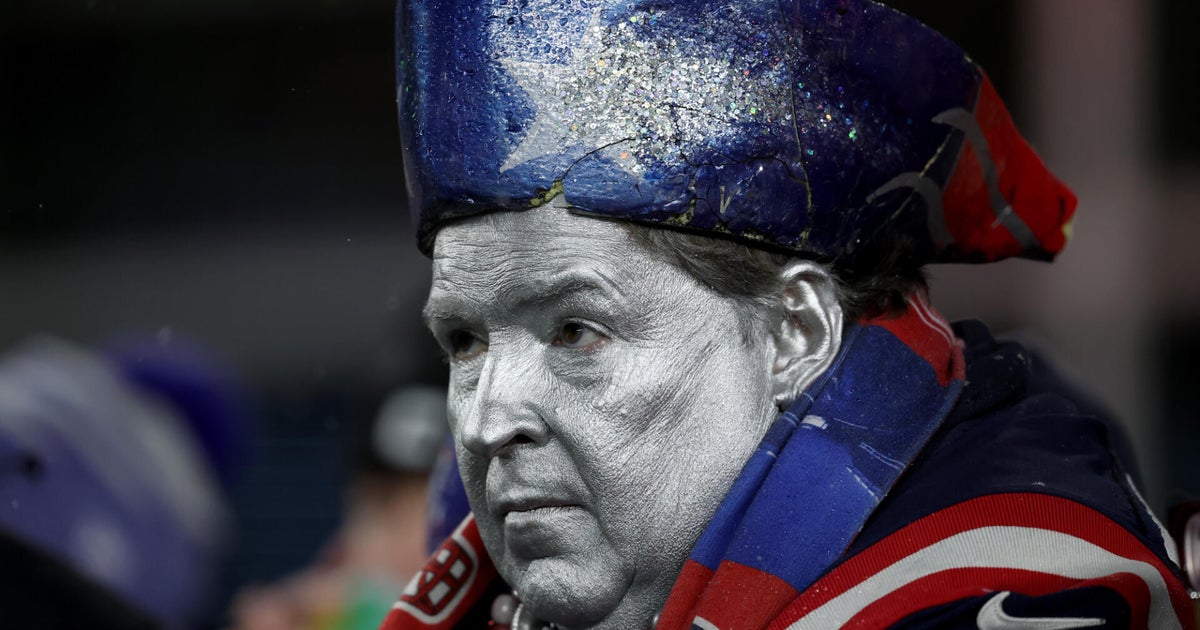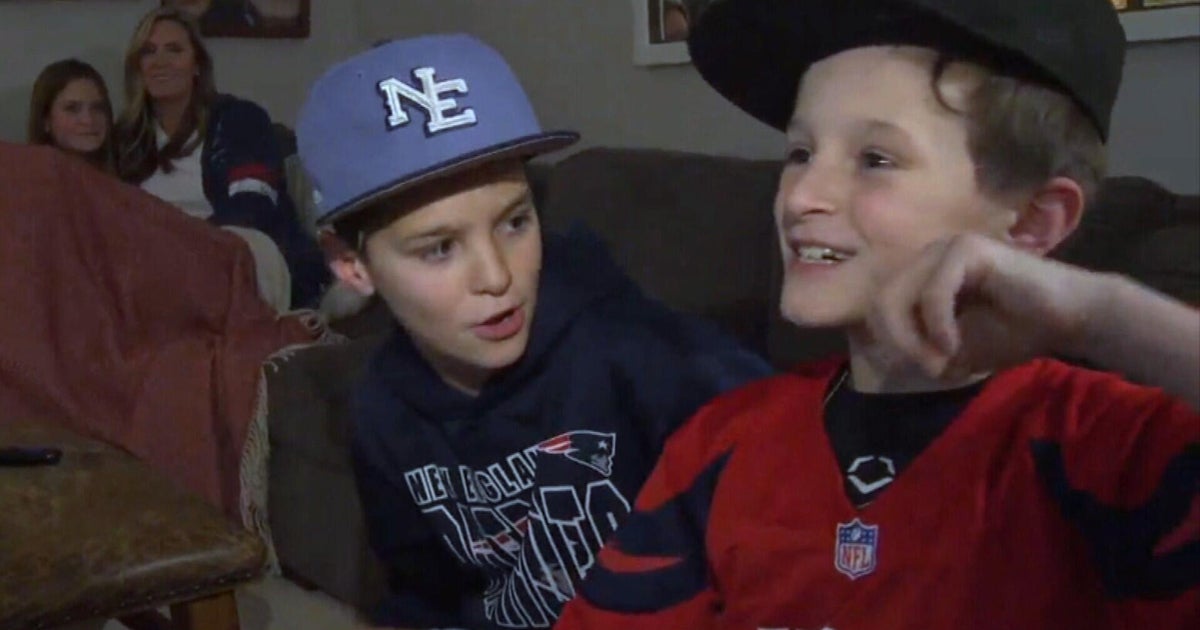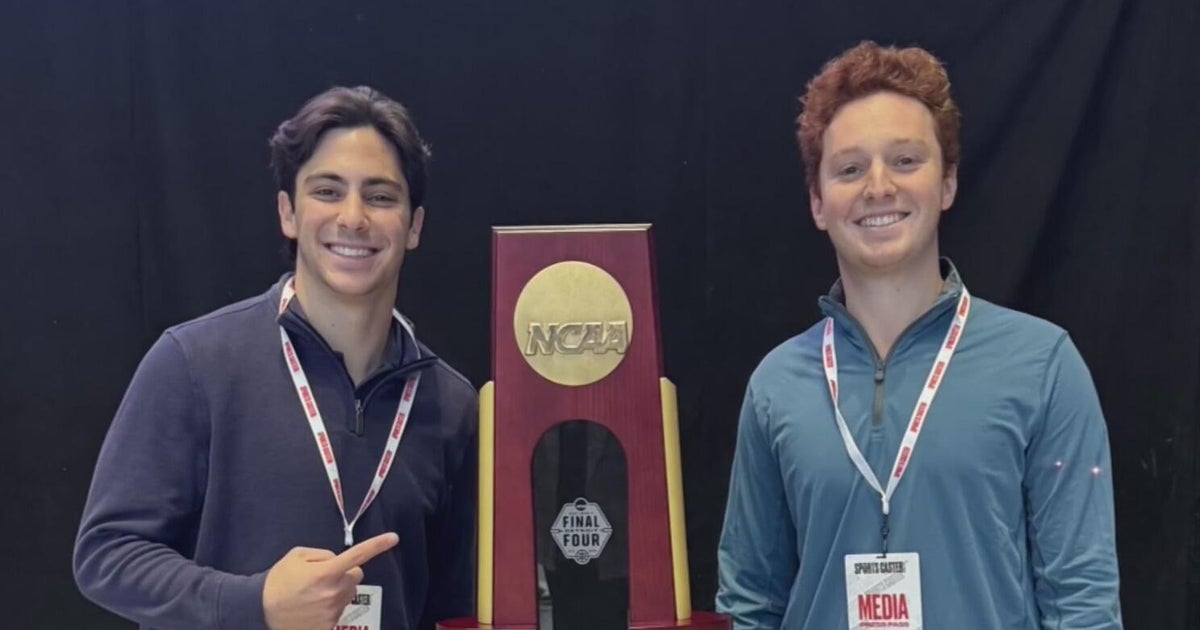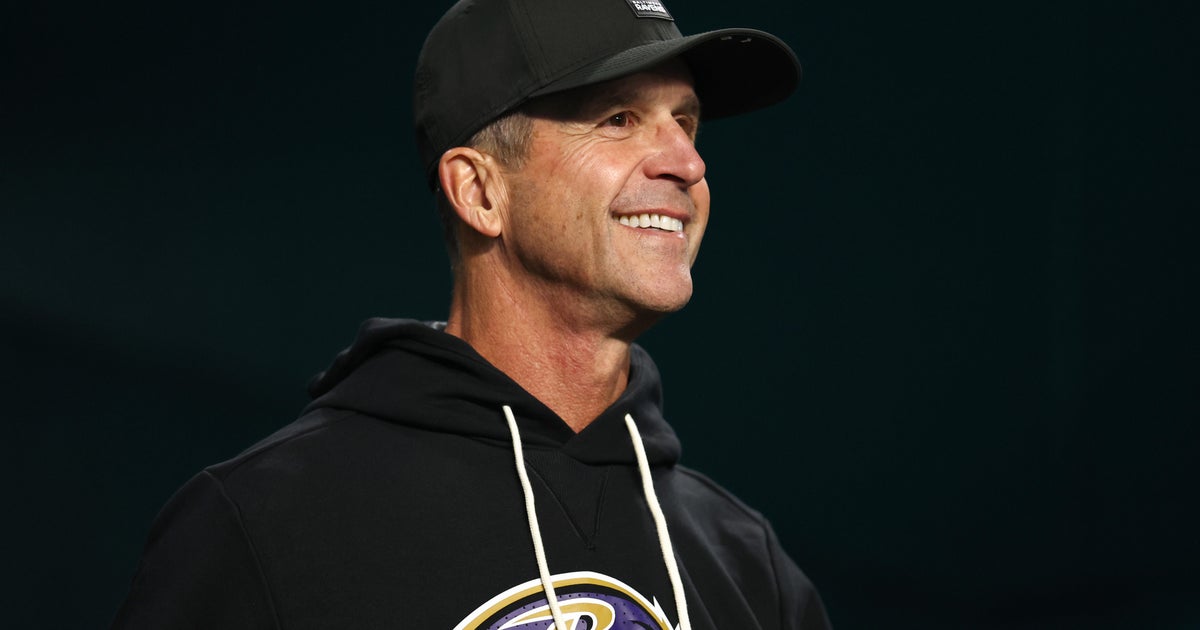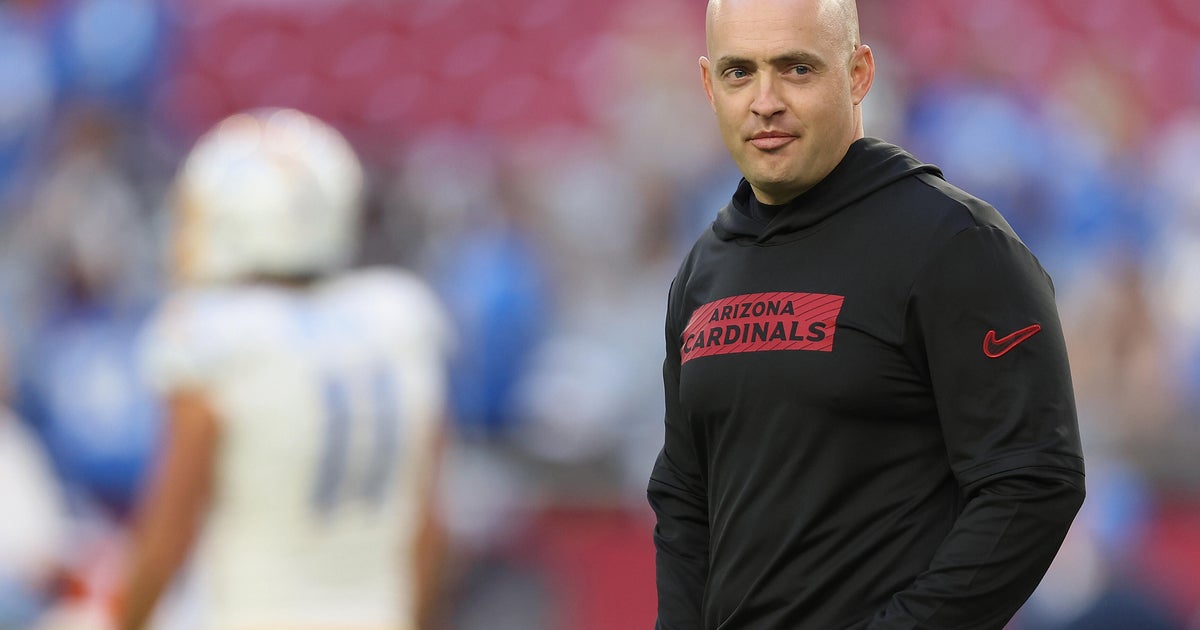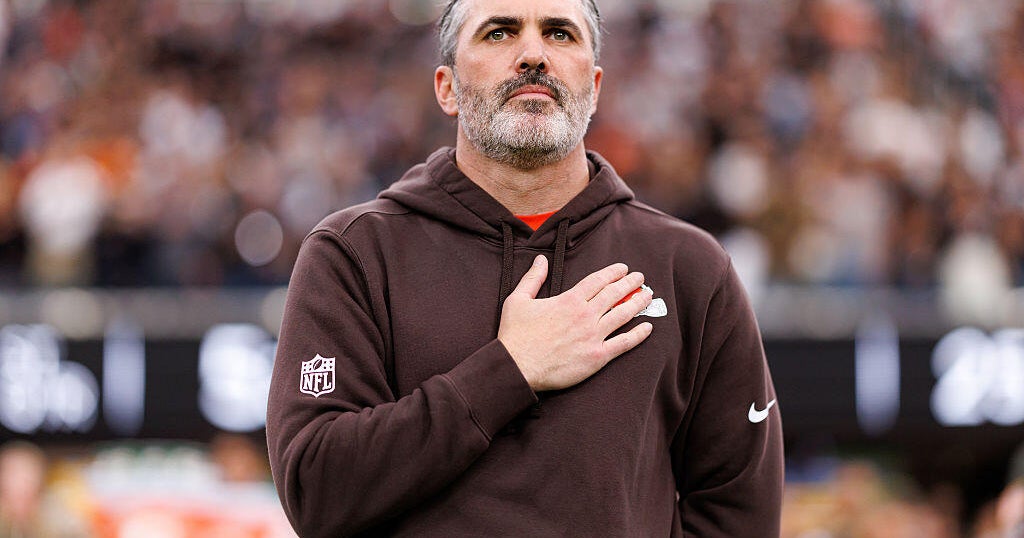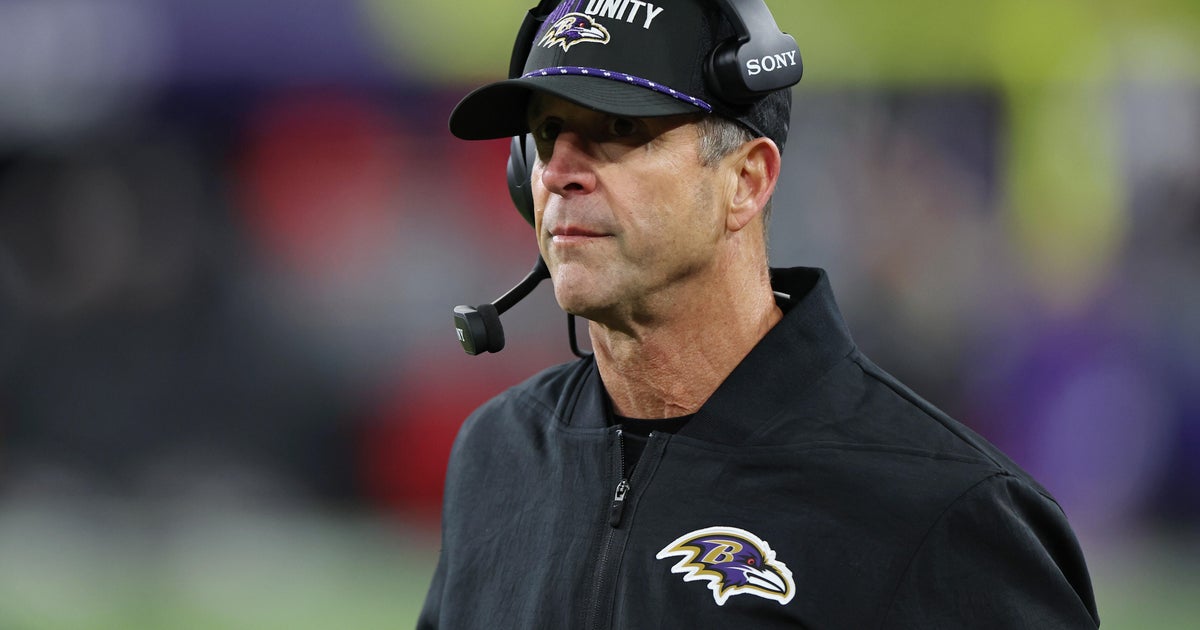ESPN Runs Story Pinning DeflateGate Scandal On NFL Instead Of Patriots, Perhaps Reshaping National Narrative
By Michael Hurley, CBS Boston
BOSTON (CBS) -- We're five years out from the birth of DeflateGate. You remember DeflateGate, right? It was this whole hullabaloo where the Ravens were mad at the Patriots and said something to the Colts, who entered the AFC Championship Game having aired an accusation with the league office about air pressure in footballs. It made the news -- as in, the real, national, most-important-stories-in-the-nation kind of news -- and the league leaked out selective information to frame the story how it saw fit, thus kicking off one of the most nonsensical and preposterous scandals in the history of professional sports.
Now five years later, as DeflateGate is getting old enough to head off to kindergarten, it seems like ESPN even agrees.
Over the weekend, Kevin Seifert wrote a column for ESPN. Framed around the news peg of the new baseball cheating scandal, this story provided a look back at DeflateGate to determine what it was really about.
Some choice excerpts (emphasis added):
"In its zeal to preserve the perception of credible outcomes, the NFL scandalized itself with an investigation that produced far more suspicion, ill will and accusations of impropriety than the original allegations themselves."
"At worst, Deflategate was a retroactive framing of the league's most successful franchise and a future Hall of Fame quarterback, a clumsy and forgettable endeavor and an unfortunate reminder that the NFL's standard for discipline demands only that an event was 'more probable than not' to have occurred."
"There was no direct evidence that the equipment assistant removed air from the footballs, or that Brady asked him to do it. And the halftime inflation measurement was a rushed and haphazard effort, one that would never pass scientific scrutiny to confirm accuracy."
"In the end, it is nothing more than an opinion to suggest that it was 'more probable than not' that Deflategate happened."
"And when an MIT professor explained that weather conditions could do the same thing, based on the ideal gas law, who could argue? The NFL wouldn't have known either way, because it did not regularly record pounds-per-square-inch readings to that point. For all we know, football deflation occurred naturally every week."
"The ensuing rule changes only further undermined the investigation and punishment. They brought structure to pregame measurements, game ball security and compliance, a tacit acknowledgment that there was little objective basis to the 2014 readings."
"The league has never released the results of tests on football air pressure, nor acknowledged a single violation in the years since."
All of those excerpts are ... interesting. To say the least.
And then, the biggest paragraph of them all:
"Yet when it was all over, no one could say for sure if Deflategate actually happened. A reasonable person could be left thinking that the investigation itself was the true scandal."
Let's run it back, one more time, amplified slightly for anyone who may have been dozing off:
"YET WHEN IT WAS ALL OVER, NO ONE COULD SAY FOR SURE IF DEFLATEGATE ACTUALLY HAPPENED. A REASONABLE PERSON COULD BE LEFT THINKING THAT THE INVESTIGATION ITSELF WAS THE TRUE SCANDAL."
Frankly, it's astonishing to see anyone on a national platform espouse such an opinion, given the way the story was told in the weeks, months and years that followed the 45-7 Patriots victory over the Colts.
The story did include an aspect or two of the saga that made the Patriots look guilty, most notably the "Deflator" text. And Seifert is obviously not in a position to speak for the entirety of ESPN. (He's also tackled the subject with a similar approach in the past, so this is not entirely new.)
Still, for ESPN to run this particular story, it almost reads like ... an admission of guilt?
Maybe, maybe not, but remember: ESPN once edited commentary from a Mike Reiss blog, commentary that was harmless and benign at worst while being insightful and well-informed at best. Remember that fiasco? Innocuous commentary based on decades of actually covering the football team in question was erased, in order to support the unproven accusations lobbed by unnamed and unknown sources.
Years later, for a story like Seifert's to run, it marks a notable change of course for the Worldwide Leader. For obvious reasons, the story didn't explore the fact that a league employee leaked false information to ESPN's Chris Mortensen to help propel the story into nationwide scandal. It also didn't repel readers by diving headfirst into the fact that NFL senior VP of football operations Dave Gardi used fake numbers in order to get the Patriots to open their doors to an NFL investigation, or that the league adamantly refused to publicly correct the record on the false numbers that had been leaked in order to put the Patriots on the defense from the get-go.
Still, even though it's too late to change anyone's mind, this new DeflateGate story offers some hope for the lasting narrative of the saga to change ever so slightly.
And, because absolutely nobody in the world asked, here are the three definitive ways to prove that DeflateGate was a sham.
- The NFL Destroyed PSI Results, After Setting Out To Collect PSI Results
Prior to the Colts' accusations against the Patriots, there was no precedent whatsoever of measuring the PSI of footballs during or after games. The protocol had game officials testing and inflating the balls prior to the game's start, and that was that.
After embarking on a massive quest to catch the Patriots, though, the league instituted a new policy for 2015. That policy required the game official to test and inflate footballs to proper levels before games, then measure the PSI levels at halftime. The official was to then send that data to the league, which would collect the numbers (and, perhaps in Roger Goodell's mind, prove that every scientist on the planet was wrong about basic physics).
While we don't know for certain, we can reasonably surmise that Goodell and the NFL did not like what they saw when that PSI data was sent to their offices. Because Goodell and the NFL were quick to note that, welllllll, we didn't actually keep that data .... we were ... uhhh .. just checking ... spot checks! ... Yeah ... we just wanted to make sure the chain of command wasn't broken with the footballs. ... The data ... yeah .... no ... didn't really look into those numbers.
"Data was collected just to see if there was a violation," Goodell claimed. "Our people never found a violation, no accusations of a violation."
Goodell also said: "It wasn't a research study."
One can reasonably surmise that if those numbers came in to league headquarters and showed that no footballs ever had PSI levels drop below the lowest allowable point of 12.5 or rise higher than the highest allowable point of 13.5, then the league would have very publicly pointed out that science is indeed fake. A-ha! Knew it all along!
Alas, thousands upon thousands of NFL games have played with footballs with PSI levels outside of the allowable range, because science is real.
But, well, it was not a research project.
Additionally, this was reported by ESPN's Sal Paolantonio during the 2015 playoffs:
That right there is the NFL being "concerned" that ... weather could affect the PSI in the footballs in a January game being played outdoors? You don't say.
That concern right there kills any and all basis for the NFL's ill-informed crusade against the Patriots for PSI.
2. "They supposed to be 13 lbs"
Everyone always talks about the "Deflator" text as the GOTCHA moment of this story. When they do that, they always seem to leave out the more important story.
The only -- ONLY -- mention of PSI that Ted Wells dug up during his investigation came in a text message sent from John Jastremski to his girlfriend in October of 2014. This message was sent after Tom Brady was upset with the feel of footballs in a Thursday night win over the Jets at Gillette Stadium.
Here's what Jastremski texted to his girlfriend:
Ugh...Tom was right. I just measured some of the balls. They supposed to be 13 lbs... They were like 16. Felt like bricks
They.
Supposed to be.
13.
Pounds.
Lack of proper contraction aside, that text right there says exactly what Jastremski's job -- and, by extension, Jim McNally's job -- was with regard to the footballs. They were supposed to be 13 PSI. Which is legal.
This text was obviously not a lie, because Jastremski likely wasn't envisioning a mustachioed millionaire reading every single one of his texts a few months later. In fact, Wells' inclusion of this particular text message (and Jeff Pash's failure to edit it out of the final report) seems like a massive mistake on the NFL's part.
For what it's worth, the referee for the Jets-Patriots game in question was Bill Leavy. He was interviewed by Wells' investigative team, but the contents of that interview were never made public. After that game, Jastremski suggested that the referees improperly inflated the balls that night, which would seemingly be a significant violation of NFL policy.
"I checked some of the balls this morn... The refs f----d us," Jastremski said to McNally. "A few of then were at almost 16."
Jastremski didn't say, "Why didn't you deflate the balls properly?" He didn't say, "Did the ref inflate the balls after you took air out of them?" He didn't say, "You failed to do your job, Deflator." He said the refs did their jobs wrong.
And for those hung up on the "Deflator" reference, consider that the "Deflator" text was sent by McNally on May 9, 2014. Five months later, in a private text to his girlfriend, Jastremski said the footballs were supposed to be at 13 PSI. If there ever was some deflating taking place, it was to make up for negligence and/or incompetence from NFL officials who were inflating footballs above the allowable limit, which -- as we know, based on the punishment dished out to the Patriots -- is among the most serious violations a person could ever commit.
But the only mention of any PSI level came in a text that said they were supposed to be at 13 PSI, which is legal. Why that text message didn't end up getting a proper level of attention is anybody's guess.
3. Roger Lied, And Nobody Cared
After forcing himself into an unqualified role as the arbitrator for Tom Brady's appeal hearing, Goodell wanted the transcripts of that hearing to remain sealed, hidden from public view. Once Judge Richard Berman unsealed the transcript, it was very clear why Goodell did not want anyone to see what actually took place in that Manhattan basement.
In his ruling to deny Brady's appeal and uphold the suspension, Goodell stated that when Brady spoke to Jastremski the morning after the 2014 AFC title game in question, "[Brady] was unable to recall any specifics of discussions and he suggested that their principal subject was the preparation of game balls for the Super Bowl."
Goodell added that there was basically no communication between Brady and Jastremski prior to the AFC title game, and the sharp uptick in communication following that game "undermines any suggestion that the communications addressed only preparation of footballs for the Super Bowl rather than the tampering allegations and their anticipated responses to inquiries about the tampering."
The message was clear: Obviously, Brady would have been talking to Jastremski about the accusations that were making the rounds in the media, so for Brady to say that this was not a topic of discussion would be a clear and obvious lie. It was a good point. Nobody could honestly believe that Brady wasn't talking about the budding controversy with Jastremski, so if he tried to pass that off as the truth, it was definitely a lie.
Turns out, Roger was the one lying.
When the transcripts were released, it was clear that Brady did testify that he spoke to Jastremski about the accusations. And he spoke at length about those conversations with Jastremski.
That didn't stop the NFL from continuing the narrative of Brady not being a credible witness by presenting that story to the Second Circuit Court of Appeals, and the three judges either didn't know or didn't care that they were being fed a lie.
Alas, people in power tend to be granted more leeway when it comes to stretching the truth, which should be the world's grandest takeaway from the entire mess known as DeflateGate.
Read more from Michael Hurley by clicking here. You can email him or find him on Twitter @michaelFhurley.


